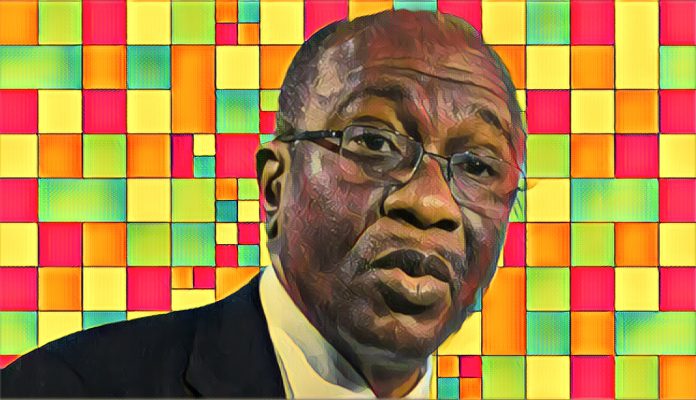A high court in Abuja has reiterated its order for the Economic and Financial Crimes Commission (EFCC) to release or produce the former governor of the Central Bank of Nigeria (CBN), Godwin Emefiele, for a bail hearing. The anti-graft agency has failed to comply with the order, which was issued last Thursday, and did not bring Emefiele to court on Monday.
Emefiele was arrested by the EFCC on October 27, shortly after he was freed from the custody of the Department of State Services (DSS), where he had been detained since June 10. He is facing charges of conspiracy and procurement fraud involving N6.9 billion, which he allegedly conferred on a CBN staff member, Aisha Ramalan-Yaro, using her company, April 1616 Investment Limited.
Emefiele’s lawyer, Mathew Burkaa, accused the EFCC of flouting the court’s order and violating his client’s fundamental rights. He said Emefiele had spent 149 days in custody without being arraigned before a competent court. He urged the court to grant him bail on liberal terms.
However, the EFCC’s counsel, Farouk Abdullahi, claimed that the order was not properly served on the commission and that some exhibits were missing. He also disputed the number of days Emefiele had spent in their custody and said their failure to obey the order was not deliberate.
The presiding judge, Justice Olusegun Adeniyi, adjourned the case to November 8 and repeated his previous order that the EFCC should either unconditionally release Emefiele or bring him to court on the next date for bail consideration. He also directed the lawyers to exchange the necessary documents before the next hearing.
Emefiele’s case has attracted public attention and criticism, as many Nigerians see it as a sign of the worsening corruption and impunity in the country. According to the 2022 Corruption Perception Index released by Transparency International on Tuesday, Nigeria scored 24 out of 100 points and ranked 150 out of 180 countries, indicating a high level of perceived corruption in the public sector. The index also showed that Nigeria had not improved its score since 2021 and had declined from 27 points in 2012.
Many civil society groups and activists have called on the government and the EFCC to respect the rule of law and ensure a fair and speedy trial for Emefiele. They have also urged the authorities to address the root causes of corruption and strengthen the institutions and systems that can prevent and combat it.
Despite the challenges and setbacks, some Nigerians remain hopeful that the fight against corruption can be won with collective efforts and commitment. They believe that transparent and accountable governance can foster development and prosperity for the nation.
Source: Business Day NG



